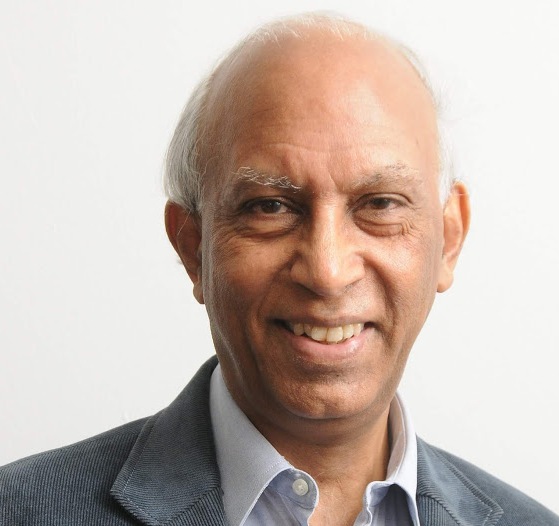
Rights Theory III : human, animal, and nature
Prof. Dr. Ishtiaq Ahmed
The main argument I have advanced in my review of the Theory of Rights is that the philosophical premise on which it is founded is that since human beings are intelligent beings they deserve to be free in order to enjoy an autonomous and fulfilling life.
Rights (or rather obligations of most and the rights of a few) were once a gift of God, or a benevolent king and so on.
With modernity displacing the medieval intellectual order arguments were set forth in favour of the rights of the individual or citizen as original, inalienable entitlements.
These in turn became human rights in the post-Second World War era and included both positive and negative freedoms as well as safeguards against genocide and other such crimes.
However, arguments then were developed to argue for women’s rights, minority rights and group rights. All such specific rights were thus a product of abstract reasoning and experience. Two basic values were accepted as essential to the contemporary theory of rights: reason and compassion.
However, as Wilhelm Friedrich Hegel and Karl Marx argued in different ways such ideas were essentially Species Being related – that is rights which ensure the survival of humankind or human race if you like to call such an attitude. Indeed, at the bottom of all such ideas of rights is a concern to ensure the overall survival of human beings.
Such an approach, one can argue, originated in the Judaeo-Christian-Islamic tradition which recognized the human being as the finest of the creations and declared that the world had been created for Man to enjoy.
In India, however, another philosophical tradition was prevalent. The caste system also recognized that human beings – Brahmins, Kshatriyas, Vaishyas and Sudras – in that order were superior creatures but that they were connected to other forms of existence and could end up as animals in a future birth.
Thus man, animals and nature in general were considered a continuous chain.
At some point, Hinduism declared meat eating wrong. Buddhism too assumed a continuity between human beings and other forms of existence, but it was Jainism which went farthest in arguing for complete equality between human beings and other creatures. Consequently, killing anything was considered wrong and unacceptable.
However, Jainism proved to be too extreme to be a practical way of life and remained a minority tendency. On the other hand, while Hinduism presented a sympathetic view on the relationship between the humankind and other creatures and nature, its caste system sanctioned inequality for the untouchables and the lowest type of Sudras were not treated any better.
Keeping these things in mind we now address the Rights Theory and the question of animal rights and nature rights. Animals are assumed to be incapable of rational thinking and therefore cannot make any use of their friend even if given them. That however is also true of small children who need care and sympathy more than anything else. The same logic can be extended to animals. Should one inflict pain on them, kill them and eat them?
No easy answer can be given. I am told that humans have feline teeth so nature prepared them to eat meat. Most civilizations accept killing of animals justified as food. Animal rights activists demand good treatment of animals we do not eat. Many are kept as pets. Horses and dogs have been domesticated and are considered sincere companions of their owners. Other animals too have been included among pets.
I suppose even if one cannot demand an end to the killing of animals for consumption as food one can propagate that idea. I for one very seldom eat any meat but that change took place because I simply lost an interest in meat eating. What we know is that in the slaughter houses in the West the treatment of cattle, sheep and other animals is appalling.
The global meat industry results in billions of animals being produced, which in turn results in the greatest greenhouse gas emissions. The Chinese especially have the most brutal ways of killing animals they eat and those include many more than what others do.
In the UK, they have devised a method whereby chickens are put to death in a painless manner and now 80 per cent of poultry is killed that way. However, kosher and halal type of animal slaughter is considered very painful, but because of religious reasons Jews and Muslims slaughter animals in accordance with their religious rituals. In any case an animal rights movement has started and is slowly gaining strength.
Nature rights have also become topical in current discussions. The environmental and ecological movements are demanding that greater care and respect be shown to nature. The cutting down of rain forests and trees in general for profit is considered most detrimental to the ecological balance. The greenhouse effect and the concomitant rise in temperatures is feared to be driving us to great natural calamities.
One can argue that taking care of animals and of nature ultimately is necessary to ensure the survival of humankind. Therefore, we all need to learn to live in ways that maintain a balance between human beings, the animal world and nature. However, all such measures can fail to deliver if the growth of human population is not brought under control.
The Species Being interest which Hegel and Marx discussed as central to the human endeavour to ensure the survival of humankind may ultimately mean granting rights to animals and nature. How all this would look like concretely cannot be anticipated properly at present, but the present imbalance cannot be sustained in the long run. In an essential sense then, the relationship between humans, animals and nature needs to be redefined.



1 Trackback / Pingback
Comments are closed.